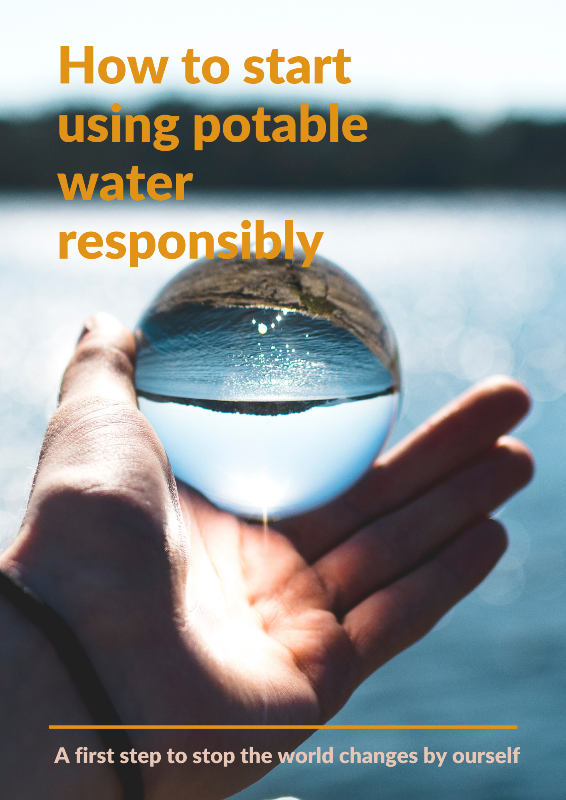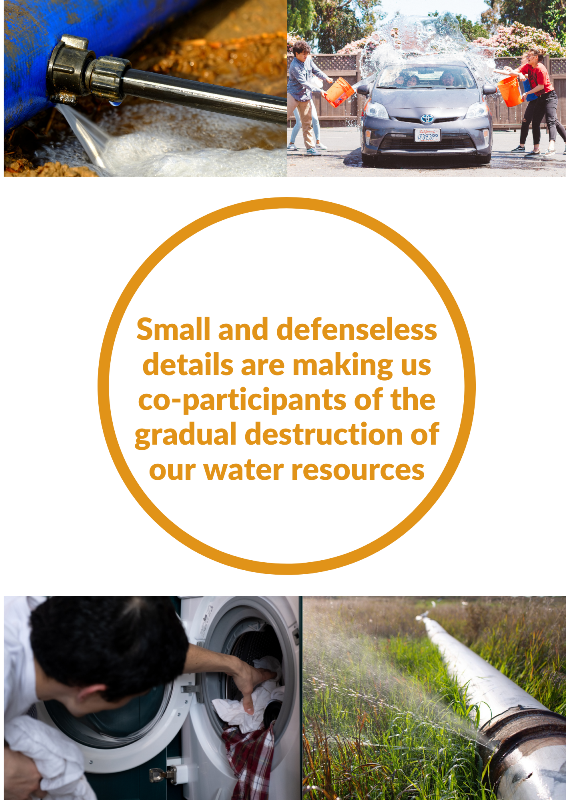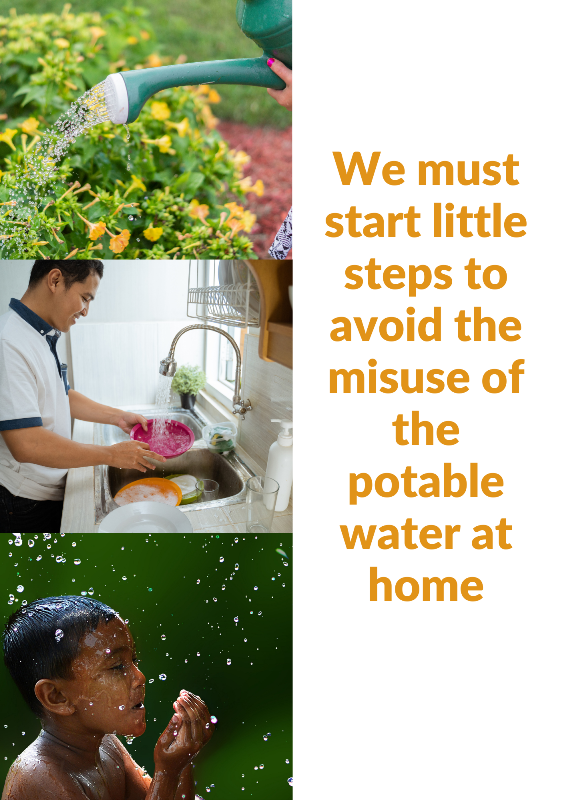Hello Hivers!
Thanks to the manifestations at the global level, it is no longer a secret the serious water crisis that many communities around the world are going through.

The advanced warming of the earth's atmosphere is the main origin of this crisis, besides in this age of technological advances there are many people who have not enjoyed the use of potable water. Then, you may wonder how is it possible that in this XXI century someone can not wash their hands by opening the tap or drink water without running the risk of contracting a bacterial disease, well it's simple: “The high atmospheric temperatures and the unconscious industrialization is gradually ending with all natural sources of potable water”.
But if we think about it and we are deeply honest, “industrialization” is not a closed term that only includes large companies, but also us “the consumers” who sometimes make an excessive use of the resources and the facilities that industrialization gives us. And without to justify our behavior, day by day we are unconsciously becoming more destructive with our environment and dependent on consumerism.

Let's see: how many times do you wash your car monthly? Do you use the full load of your washing machine, just to clean your week gym clothes? How long do you wait to fix a small water leak in your house? As you can see, these and other small and defenseless details are making us co-participants in the gradual destruction of our non-renewable water resources. But, what is a non-renewable resource?
A non-renewable resource is one that, although it is found naturally in large quantities remains limited. Its self-regeneration is null, or its renewal process is extremely slow. In the case of the potable water, it is mainly obtained from rivers, wells and lakes, but they can take many years to complete their recovery cycle. This is the main reason why potable water is considered a non-renewable resource. And if we add to this reality the fact that global warming is accelerating the process of drought in these hydrological sources, then the only thing we have to think about is: In a few years, to take a bath with a shower will become a beautiful memory of a happy yesterday?
Almost half of the world's population will not have access to potable water by 2050.
However, I believe that all is not absolutely lost, and we can start today to make small changes in our daily lives to slow down the destruction of our hydrological resources, in this way we can continue to enjoy the privilege of a decent potable water service, but also will show respect to those who unfortunately have years of suffering from the stark absence of water.
What can we start doing at home to avoid the misuse of the potable water?
Do not use your washing machine with a small load of clothes, and avoid using the pre-wash system as much as possible.
While brushing your teeth, washing the dishes, taking a shower or shaving, do not leave the faucet running, in this way you will avoid wasting up to ten liters of water.
When you wash your car at home, use recycled water or rainwater harvesting systems.
Water your garden at night, because if you do it during the day you will lose up to 30% of the water used due to evaporation.
Check for possible leaks in faucets and urinal systems because this generates large losses of water, and therefore: money!
Do not use your toilet as a wastebasket to throw only papers, cigarette butts, etc. because with every flush up, 10 liters of water are wasted.

Every process of change can be a little annoying, but remember if you want quality of life you must pay a price, either economically or socially. Besides, as the time goes by what we consider a common good today, may become a luxury tomorrow.
So, do you use potable water responsibly in your daily days?

The flyers, banner with its images were made using The Canva Application.